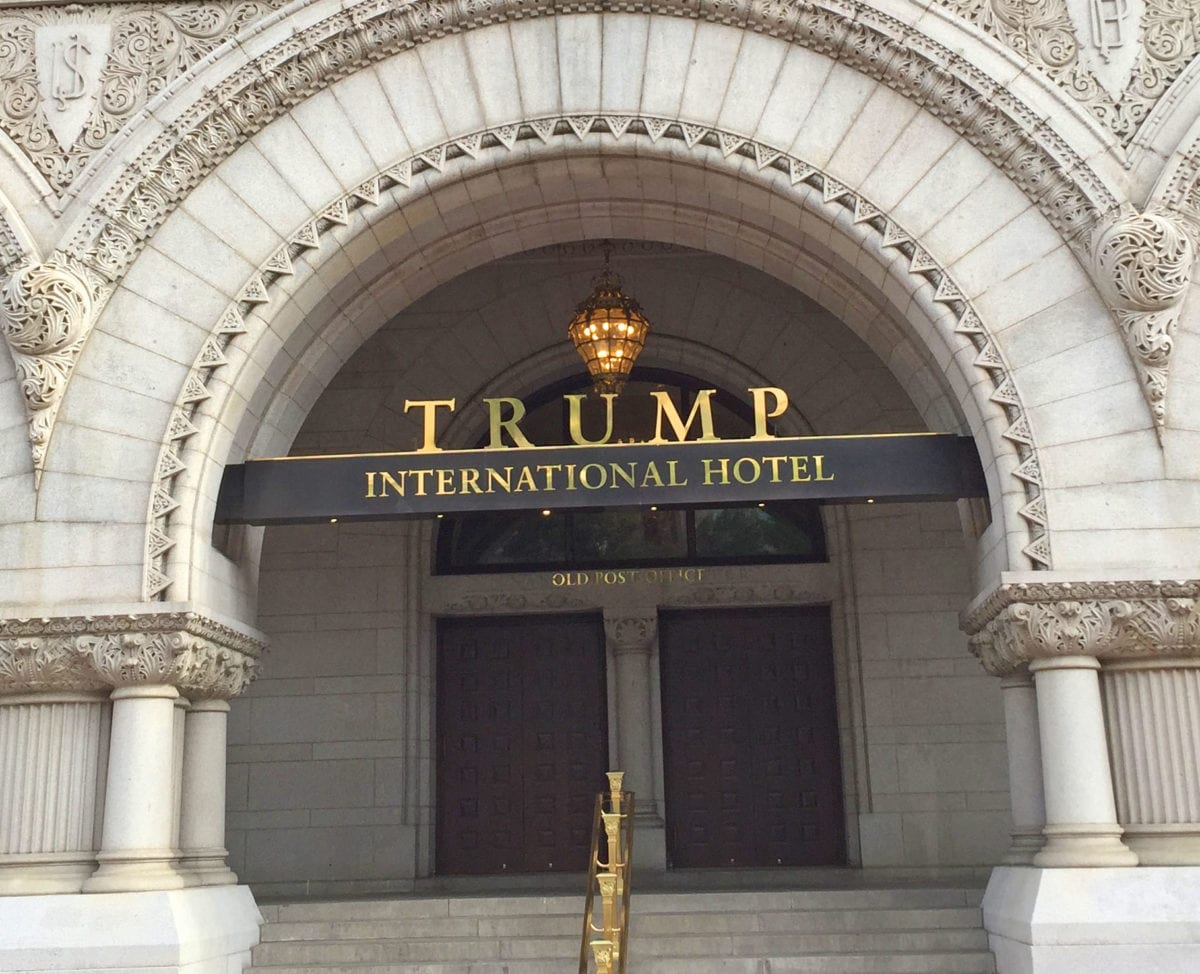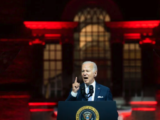
The front entrance on Pennsylvania of the Trump International Hotel in Washington, D.C.: Glynn Wilson
By Glynn Wilson –
A whopping 80 percent of American voters now say Donald Trump’s business interests have influenced his decisions as president, according to a new Morning Consult poll. And 50 percent now say that’s a bad thing, up 6 points this week after critical revelations came out in the The New York Times on Sunday about Trump’s failing business empire and negative tax status, which he has fought for years to keep secret from the public.
The percentage of people who say Trump’s business entanglements are a good thing has fallen 8 percentage points, to 31 percent.
The investigative reporting found that Trump did not pay federal income taxes in 10 of the past 15 years because of massive business losses, that he ran for office to revive his troubled personal brand and that he is facing a deadline of the next few years to pay back millions of dollars in unsecured loans, a position that critics say could leave him vulnerable to outside influence.
Donald Trump the Criminal Tax Cheat: Is This the Smoking Gun to Bring Trump Down Finally?
The biggest issue for voters, according to the poll conducted Sept. 28-30, is the notion that he misled the public about his financial record — a decades-long campaign that started with the premiere of NBC’s “The Apprentice,†a reality show in which Trump starred as a successful businessman, even though in real life, he has been a total failure, losing millions upon millions in failing casinos, golf courses and hotels.
Six in 10 voters said the deception was at least a “minor†issue for them, while slightly smaller shares said the same about the loans coming due, the potential for foreign influence and the reporting that showed Trump paid only $750 in federal income taxes in 2016 and 2017 — less than the average taxpayer.
Trump’s loans and potential vulnerability to foreign bribery were at least minor issues for 56 percent of independent voters, while nearly half of Republican voters said the issues were not a concern to them.
“It is unclear how or if the tax story will have a major impact on Trump’s race against Democratic nominee Joe Biden, who is leading nationally and in key states,” according to Morning Consult Political Intelligence. “But it does have the potential to tarnish his image as a business mogul, as other research has shown.”
The survey asked voters if they’d rate Trump as successful, asking the question both before and after providing information about the The New York Times report. Once voters learned about the news, the share who said he was successful dropped 10 points, to 44 percent, and the share who rated him as unsuccessful increased 3 points, to 46 percent.
Morning Consult ran a similar test in May 2019 after news broke that Trump reported $1.17 billion in losses between 1985 and 1994. It found similar movement in the share who called Trump successful, but a larger change in the share who rated him unsuccessful.
“Between the two surveys, the share of voters who said Trump was successful recovered to its initial May rating,” the pollsters say in their report on the numbers, “raising questions about the lasting power of the critiques on his finances.
“But some damage was done,” they add.
The most recent New York Times story had received 4.6 million impressions online by the day the poll started fielding, according to data from NewsWhip obtained by Axios. But it may have been less salient news to the electorate: 37 percent of voters — including half of Democrats and 30 percent independents and Republicans — said they’d seen, read or heard “a lot†about it, though another 37 percent also reported hearing “some.â€
The issue came up briefly in the first presidential debate on Tuesday, when Trump denied the report and claimed without evidence to have paid millions of dollars in taxes in one year.
Four years before, Democrat Hillary Clinton raised her own concerns about Trump’s taxes, prompting Trump to say he was “smart†for not paying them, a line of defense that his allies have tapped into in recent days in their response to the story.
The latest survey found 41 percent of voters said that Trump didn’t pay income taxes because “he is a smart businessman and knows how to move his money around,†compared with 36 percent who said he did not pay “because his business ventures are usually unsuccessful.â€
Responses largely broke along partisan lines, with 59 percent of Democrats siding with the sentiment that Trump was a loser, compared to 58 percent of Republican voters going along with the opposite line.













